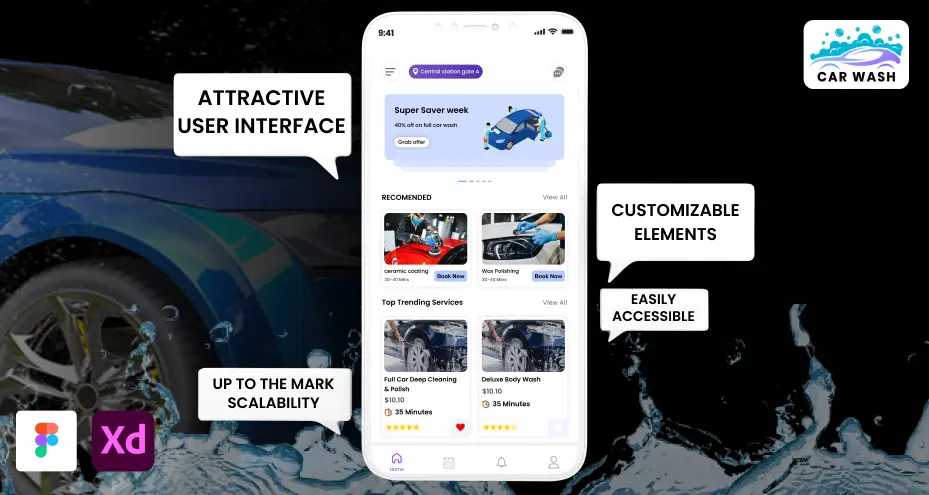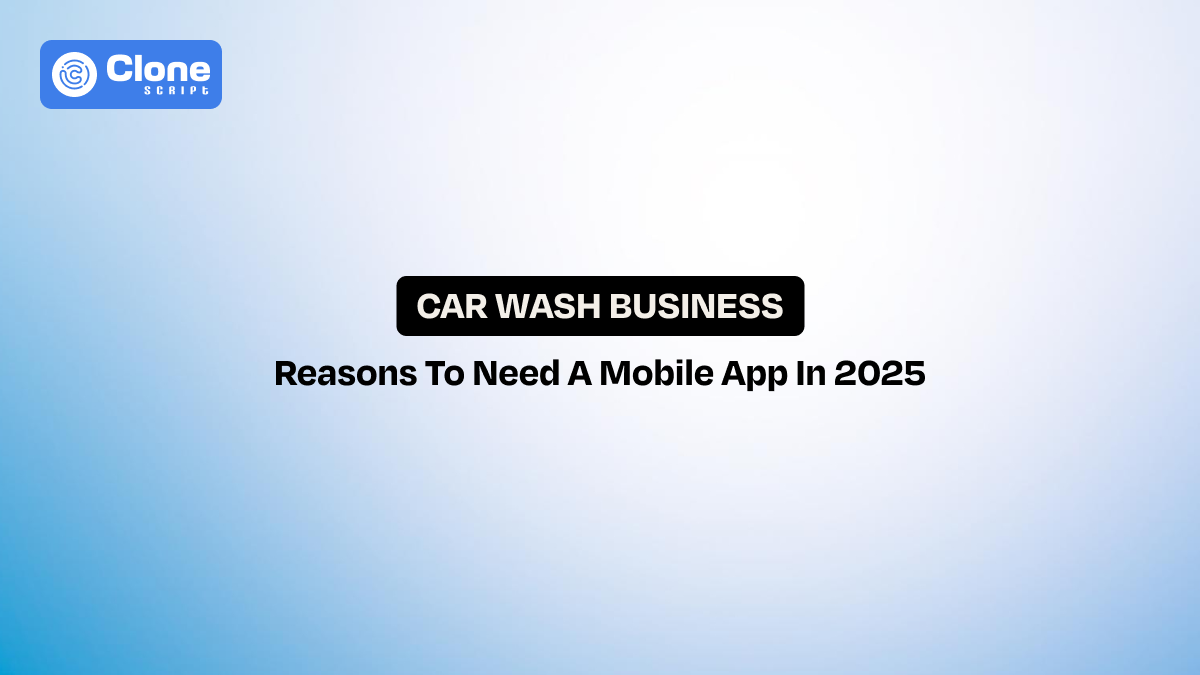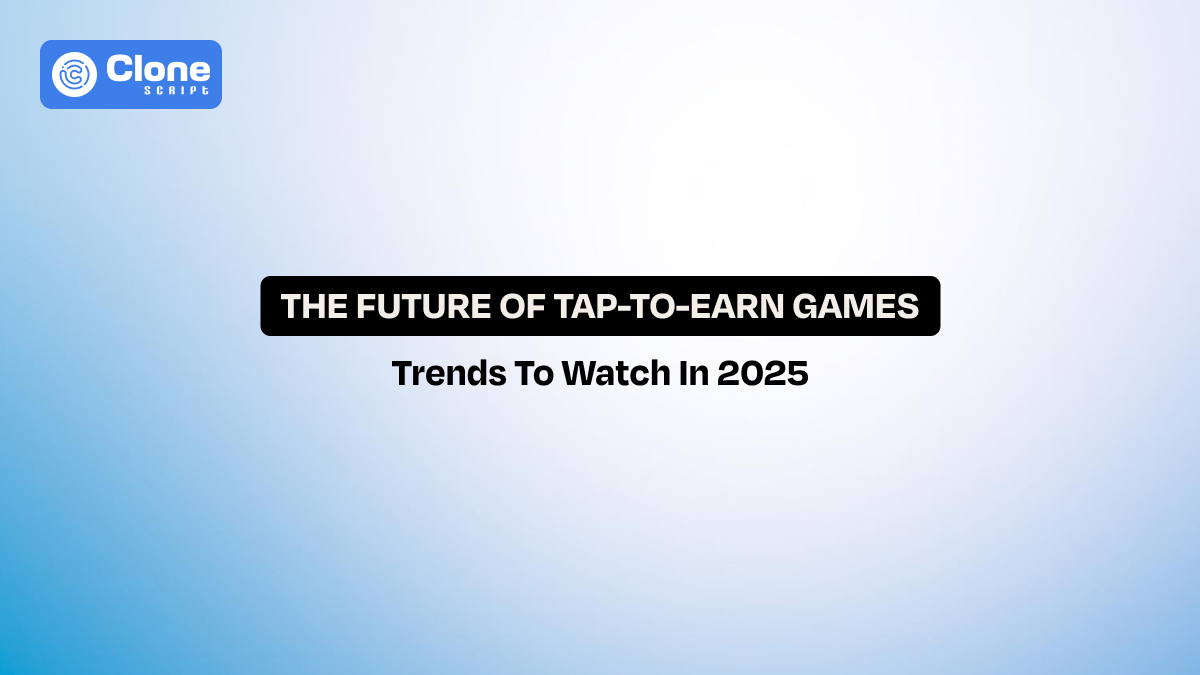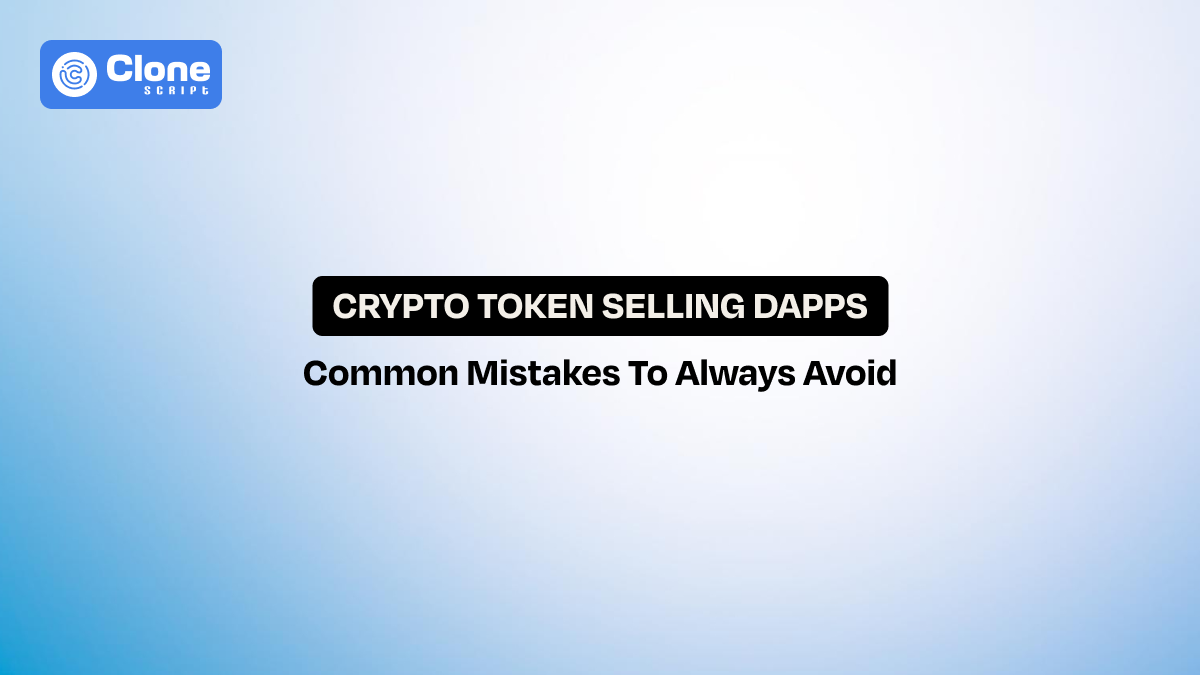Why Every Car Wash Business Needs a Mobile App in 2025
If you’ve ever tried getting a car wash appointment by calling around or visiting in person, you know how frustrating it can be. In 2025, customers expect speed, simplicity, and convenience, just like they do when ordering food or booking a ride. The old ways of managing car wash bookings just don’t cut it anymore.
As a developer, a car wash mobile app development isn’t just about writing code. It’s about solving a real business problem. From there, car wash service providers get a way to move beyond paper logs and messy spreadsheets, offering their customers the ability to book, schedule, and pay. These can be done through a centralized system from their phone.
Businesses that don’t adapt risk being left behind. The question isn’t “if” they need an app, it’s “how fast” they can get one built. Let’s explore why this shift is important and what makes a well-built app a total business maker.
Why a Mobile App Matters in the Car Wash Industry?
A car wash app saves time, prevents booking errors, and meets customers’ growing demand for convenience to maintain comfort standards.
Here’s the reality: People don’t want to call businesses, wait on hold, or guess whether their appointment is confirmed. In 2025, convenience is an expectation. According to a recent survey by Statista, over 85% of consumers prefer using mobile apps for service bookings rather than calling or visiting in person.
-
On top of that, the global mobile app market is expected to reach $567 billion by 2025. It is driven by how quickly people are shifting toward mobile-first services. The car wash industry is no exception.
A car wash mobile app puts everything customers want in their pocket:
-
Easy service selection
-
Instant booking confirmation
-
Real-time appointment tracking
-
Digital payments.
For car wash businesses, this leads to fewer no-shows, smarter scheduling, and a more satisfied customer base.
There are no more messy appointment books or missed phone calls. In the past, most service providers preferred manual bookings and got fewer leads.
For developers, this is more than just building an app. It’s solving a real-world problem while helping local businesses stay relevant in a digital-first market.
But what benefit does a business get by having a dedicated app for car wash appointments through an online booking system?
Here’s the answer.
5 Key Benefits of a Mobile App for Car Wash Businesses
Building a car wash mobile app is not just about having another digital channel. It’s about helping businesses to serve the customers better and set the standards that can’t even be matched. After all, it’s all about business credibility creation. Take a look at the advantages of the car washing business app:
1. Better Customer Experience – Fast, Simple, Reliable
One of the biggest pain points customers face is the lengthy process of booking a car wash service. Calling a number, waiting for a person to answer, or showing up hoping there’s availability, it’s frustrating and outdated.
A well-designed car wash app removes these barriers. In just a few taps, customers can browse available services, see transparent pricing, select a time slot, and get instant confirmation.
-
According to a survey by App Annie, people spend over 90% of their mobile time in apps rather than browsers. This shows they prefer apps that deliver convenience.
The best part about the app is push notifications. From that, sending a reminder to customers for an upcoming appointment or about seasonal deals can increase repeat usage. For this, businesses don’t have to spend more on paid social media ads for marketing.
2. Smarter Operations – Automation Reduces Chaos
Running a car wash means being involved in appointment logs, staff schedules, and payment tracking. All of this can be done manually or via spreadsheets.
The problem? It’s slow, prone to human error, and hard to scale.
Having a mobile app can solve these issues. Every time a customer books a service, the app automatically updates the schedule, assigns a nearby service provider, and logs the job. No more double bookings, no more missing appointments, and no more manual follow-ups.
This isn’t just efficiency. It’s a massive time and cost saver. Businesses can focus on improving service quality, rather than wasting hours managing schedules by hand.
3. Real-Time Service Tracking – Build Trust Through Transparency
One of the biggest frustrations customers face when booking any service is uncertainty.
For example, a customer scheduled an on-demand car wash on a busy afternoon, but there’s no way to know when the technician will arrive. He will be left guessing, calling the business repeatedly, or worse, missing the appointment entirely. This uncertainty leads to a poor customer experience and damages trust in the service.
Using a mobile application, there is no chance of these issues. Through real-time service tracking, when a customer books a service, the app provides live updates showing exactly when the assigned technician is en route, their current location on the map, estimated time of arrival, and service start time.
This level of transparency turns a previously frustrating process into a predictable, reliable experience.
4. Data-Driven Insights – Smarter Business Decisions
Most traditional car wash businesses don’t realize that every booking and user interaction in a car wash mobile app generates useful data.
-
Which service (basic wash, deep cleaning, interior detailing) is most in demand?
-
What time of day (afternoon or evening) do most customers book their wash?
-
Where are users dropping off (service detail page or payment errors) during the booking process?
These are not just numbers. They’re actionable insights that help business owners make smarter decisions.
For example, if the app shows low bookings in the afternoon, the owner could offer targeted discounts to boost demand. If most users abandon the booking at the payment stage, that points to a UX problem needing fixing.
For developers, adding analytics involves building a tool that helps businesses grow by making data-driven decisions instead of guesswork.
5. Stay Competitive – Don’t Let Competitors Get Ahead
Most local car wash businesses still don’t have a mobile app. That means your client has a huge chance to stand out by offering what customers now expect: fast, simple, on-demand service.
Think about it. In 2025, people don’t want to call, wait, or visit in person just to book a car wash. They want to open an app, choose a service, pick a time, and track when the technician arrives. That’s it.
Having a car wash app doesn’t mean doing more complicated things. It’s about doing things smarter. This way, you help businesses get to market faster, stay ahead of competitors, and stop losing customers to digital-savvy rivals.
Why a Ready UI Kit Beats Starting from Scratch?
Building a car wash mobile app from the first step might seem like the most flexible approach. But in reality, it’s time-consuming, repetitive, and often inefficient. A ready-made UI kit provides a smarter path, allowing developers to focus on solving real business problems rather than reinventing the wheel. Here’s why it’s the better choice:
-
Saves Time and Effort
Creating every screen, button, and form manually can take weeks. A car wash app UI kit comes with pre-designed components for booking flows, service lists, payment integration, and user profiles. This lets developers launch apps faster without compromising quality.
-
Professional and Consistent Design
UI design kits are designed by UX experts, ensuring every element, like buttons, colors, forms, and navigation, follows best practices. Consistency reduces user confusion and creates a polished, professional experience that builds trust.
-
Focus on Business-Specific Features
Instead of spending time on repetitive elements, developers can focus on features that truly add value, like push notifications, real-time tracking, loyalty programs, or analytics. This checks whether the app solves real problems for the business and its customers.
-
Cross-Platform Ready
Many UI kits, especially Flutter-based ones, are optimized for both Android and iOS. This eliminates the need to code separately for different platforms, saving time, reducing errors, and speeding up development.
-
Faster Delivery and Better ROI
With a UI kit, apps can go live sooner, helping businesses serve customers quickly and generate revenue. Developers can deliver a high-quality product efficiently, improving client satisfaction and ROI.
Here’s an example of a Figma-powered UI kit design for mobile app development:

Using a ready UI kit doesn’t mean cutting corners. It means working smarter, delivering faster, and focusing on the features that really make a difference for both the business and its customers.
How to Get Started with Your Car Wash App?
Building a car wash mobile app may feel overwhelming, but breaking it into clear steps makes the process manageable. The key is to focus on solutions that improve both user experience and business operations.
1. Choose the Right UI Kit
Using a Figma UI kit or a Flutter UI kit (referred to as a template also) provides pre-designed screens for bookings, service lists, payments, notifications, and user profiles. This approach saves time, reduces errors, and maintains consistency across the app. So, developers should focus on unique features like real-time tracking or loyalty programs.
2. Customize the Design
Customization is ideal for brand identity and user experience. The app should reflect the business’s colors, fonts, and logos, while keeping navigation intuitive. Customers should be able to browse services, select a time, and complete payments quickly. A clean, simple design reduces booking drop-offs and keeps users engaged.
3. Build a Reliable Backend
The backend development powers the app. Using technologies like Firebase, Node.js, or Django helps maintain the standards of reliable management of users, appointments, payments, and notifications. Real-time updates for bookings and technician tracking prevent conflicts and improve the customer experience. Through scalable architecture system development, the app can grow with the business.
4. Integrate Secure Payment Solutions
Payments must be seamless and trustworthy in the service segment. Integrating payment gateways like Stripe, Razorpay, or Paytm allows multiple options like credit/debit cards, wallets, or UPI payments for confirming a car washing booking. Smooth checkout prevents abandoned bookings and builds customer trust.
5. Test Thoroughly
Before launching, the car wash appointment booking app must be tested across devices and operating systems. Simulate real-world scenarios like overlapping bookings, slow connections, and failed payments. Check that notifications, payments, and tracking features work reliably. Through QA & testing, it can be done.
6. Launch and Monitor
After launch, monitor the app closely. Collect user feedback to identify pain points and use analytics to track popular services, peak booking times, and user behavior. Continuous updates based on data improve usability, add features, and keep the app competitive.
Following these steps makes the app functional, professional, and provides a smooth, engaging experience for customers. It is helping the business to grow and stand firmly.
Conclusion
A mobile app is no longer optional for car wash businesses in 2025. From real-time bookings and service tracking to secure payments and personalized customer features, a well-designed app improves convenience, trust, and loyalty. For developers, using ready-made UI kits like Figma or Flutter speeds up development, offers consistency, and allows focus on unique, value-adding features.
By carefully customizing the design, building a robust backend, integrating payments, testing thoroughly, and monitoring post-launch, businesses can deliver a professional, user-friendly experience. This can help to stay competitive and drive growth in a digital-first world.
FAQs
-
How long does it take to develop a car wash app?
Car wash app development time depends on the app's complexity and features. A simple app may take 2 to 4 months, while a more complex app with advanced functionalities can take 6 months or longer. Using the Figma UI kit and Flutter templates will reduce this time by 30-60%.
-
What kind of technologies are used to develop a car wash app?
The common technologies for car wash app development include:
-
Frontend: Flutter, React Native for cross-platform development.
-
Backend: Node.js, Django for server-side logic.
-
Database: MongoDB, PostgreSQL for data storage.
-
Payment Integration: Stripe, PayPal for secure transactions.
-
Geolocation Services: Google Maps API for location tracking.
The latest tech stack can also be added to make a more advanced app, helping in the future.
-
How much does it cost to develop a car wash app?
The development cost varies based on features, complexity, and platform. On average, developing a basic car wash app can cost between $5,000 and $20,000. Factors influencing the cost include design complexity, integration of advanced features, and the development team's location.
-
What are the monetization strategies for a car wash app?
Car wash app monetization can be achieved through:
-
Service Fees: Charging a commission on each booking.
-
Subscription Plans: Offering premium services for a monthly fee.
-
In-App Advertising: Displaying ads from third-party networks.
-
Loyalty Programs: Encouraging repeat business through rewards.
The app type decides the best way to monetize the app.
 BTC - Bitcoin
BTC - Bitcoin
 USDTERC20 - USDT ERC20
USDTERC20 - USDT ERC20
 ETH - Ethereum
ETH - Ethereum
 BNB - Binance
BNB - Binance
 BCH - Bitcoin Cash
BCH - Bitcoin Cash
 DOGE - Dogecoin
DOGE - Dogecoin
 TRX - TRON
TRX - TRON
 USDTTRC20 - USD TRC20
USDTTRC20 - USD TRC20
 LTC - LiteCoin
LTC - LiteCoin







